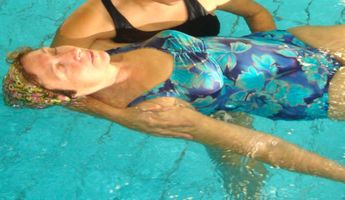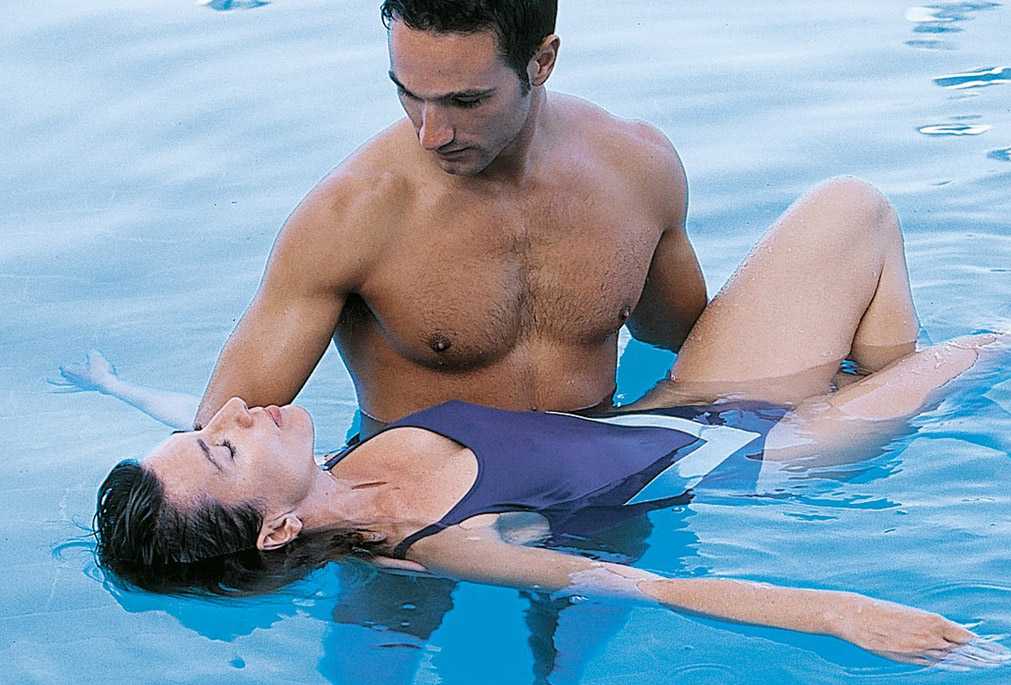Watsu in Nottinghamshire
Search and Compare the Best Clinics and Doctors at the Lowest Prices for Watsu in Nottinghamshire

Find the best clinics for Watsu in Nottinghamshire
No clinics available
Czech Republic offers the best prices Worldwide
Price: $ 400

- Home
- United Kingdom
- Nottinghamshire
WHY US?
At Medijump, we're making medical easy. You can search, compare, discuss, and book your medical all in one place. We open the door to the best medical providers worldwide, saving you time and energy along the way, and it's all for FREE, no hidden fees, and no price markups guaranteed. So what are you waiting for?

Free

Best Price

Widest Selection

Risk-Free
What you need to know about Watsu in Nottinghamshire
Watsu is a form of water therapy (hydrotherapy) that involves massages, stretches, and acupressure in warm water. Watsu comes from the words water and Shiatsu (meaning “finger pressure” in Japanese) is a traditional Japanese massage that can reduce stress and ease neck, shoulder, and back pain using acupressure.
Watsu can be performed on different groups of people, including children, adults, seniors, athletes, and pregnant mothers. It has many benefits but is most commonly used to ease pain and tension that is caused by a range of conditions. It may provide relief for those who have:
-
Low back pain
-
Muscle tension
-
Chronic pain
-
Discomfort during pregnancy
-
Depression
-
Anxiety
-
Stress-related conditions
-
Post-traumatic stress disorder
-
Sleep disorders
-
Neurological conditions (such as multiple sclerosis)
-
Fibromyalgia
-
Spinal cord injury
-
Injury rehabilitation.
This type of therapy can be used to improve joint mobility and physical movement as well.
What does the Procedure Involve?

Watsu sessions can be customized to your specific conditions. It can involve massages, movements, and stretches that are designed to ease your symptoms.
Watsu is performed in a pool or hot tub and the water is heated to around 35°C, which is close to the temperature of your skin. To increase relaxation, Watsu is usually performed in a peaceful setting and many therapists play soothing music while they carry out the therapy.
During your Watsu sessions, you will typically need to wear floating devices on your legs or arms. To start the session, you will enter the water and float on your back. You may have to rest the back of your head and knees in your therapist’s forearms. The therapist will gently move your body in water. This is called passive hydrotherapy because you do not have to actively perform the movements.
The therapist will slowly move your body in large circles, and alternate between extending their arms and drawing them in to move you back and forth in the water. Your arms and legs will then be extended in gentle, repetitive patterns. In some cases, they may also twist, bend, or lift different parts of your body. The therapist may also rest your head on their shoulder and move you in large circles. Throughout the whole session, pressure points on your body will be massaged gently.
How Long Should I Stay in Nottinghamshire?
Since there is typically no recovery time or follow-up checkups, you can leave Nottinghamshire on the same day of the therapy or as soon as you want to. Note that you may need more than one Watsu session, so if you do not want to go back and forth between your home and Nottinghamshire, you can choose to stay in the area until you finish all of your sessions.
What's the Recovery Time?
There is no recovery time after Watsu sessions. You can usually go back to your normal routine, including work and exercise, immediately after the procedure. However, this depends on your specific condition. For instance, if you have spinal cord injury, your therapist and doctors may recommend you to take some time off work until you have fully recovered. Talk to your therapist and/or doctor regarding the specific recovery period for your individual case.
What About Aftercare?
No aftercare is required for the Watsu itself. However, depending on the specific condition you have, you may need special aftercare to help you recover. For example, if you have Watsu for spinal cord injury, you may also need to undergo occupational therapy and use assistive devices to maximize your function.
What's the Success Rate?
Watsu is a safe procedure with high success rates. Several studies revealed that there is a positive correlation between pain relief and Watsu. In a 2013 study, 12 people with fibromyalgia had reduced symptoms after completing 15 sessions. A 2019 study showed that a group of children with juvenile arthritis experience less pain after Watsu.
It is also proven to reduce anxiety. According to a small 2014 case report, someone with temporomandibular disorders have lower anxiety levels after they underwent Watsu.
While it is safe and effective, it does have several drawbacks and side effects. Since it is a passive therapy, you must be willing to let your therapist do the movement for you. This means that you will be in close contact with your therapist, which may feel uncomfortable for some people. Watsu may worsen several conditions, such as fever, bowel incontinence, skin infections, and uncontrolled epilepsy. Therefore, make sure to avoid Watsu if you have these conditions.
Are there Alternatives to Watsu?
Besides Watsu, you can try traditional hydrotherapy. In traditional hydrotherapy, a physiotherapist can show you exercises to help improve your strength and range of movement. If you do not want to have your therapy in water, you can try other forms of physical therapy as well. In regular physical therapy, a therapist will show you stretches and movements to help relieve your symptoms.
What Should You Expect Before and After the Procedure
Before Watsu, you may experience chronic pain, muscle tension, low back pain, anxiety, or other conditions that cause uncomfortable symptoms that interfere with your ability to perform day-to-day activities and stop you from enjoying your life. After Watsu, the symptoms should be relieved. Your joint mobility and soft tissue viscoelasticity will be improved, while your muscle spasm, muscle activation, and pain perception should be decreased. Overall, your quality of life should improve after Watsu.
Whilst the information presented here has been accurately sourced and verified by a medical professional for its accuracy, it is still advised to consult with your doctor before pursuing a medical treatment at one of the listed medical providers
No Time?
Tell us what you're looking for and we'll reach _in_a_hurry.phpout to the top clinics all at once
Enquire Now

Popular Procedures in Nottinghamshire
Prices Start From $21

Recommended Medical Centers in Nottinghamshire for procedures similar to Watsu

- Interpreter services
- Translation service
- Religious facilities
- Medical records transfer
- Medical travel insurance
- Health insurance coordination
- TV in the room
- Safe in the room
- Phone in the room
- Private rooms for patients available

- Interpreter services
- Translation service
- Religious facilities
- Medical records transfer
- Medical travel insurance
- Health insurance coordination
- TV in the room
- Safe in the room
- Phone in the room
- Private rooms for patients available

- Interpreter services
- Translation service
- Religious facilities
- Medical records transfer
- Medical travel insurance
- Health insurance coordination
- TV in the room
- Safe in the room
- Phone in the room
- Private rooms for patients available

- Interpreter services
- Translation service
- Religious facilities
- Medical records transfer
- Medical travel insurance
- Health insurance coordination
- TV in the room
- Safe in the room
- Phone in the room
- Private rooms for patients available

- Interpreter services
- Translation service
- Religious facilities
- Medical records transfer
- Medical travel insurance
- Health insurance coordination
- TV in the room
- Safe in the room
- Phone in the room
- Private rooms for patients available

- Interpreter services
- Translation service
- Religious facilities
- Medical records transfer
- Medical travel insurance
- Health insurance coordination
- TV in the room
- Safe in the room
- Phone in the room
- Private rooms for patients available

- Interpreter services
- Translation service
- Religious facilities
- Medical records transfer
- Medical travel insurance
- Health insurance coordination
- TV in the room
- Safe in the room
- Phone in the room
- Private rooms for patients available

- Interpreter services
- Translation service
- Religious facilities
- Medical records transfer
- Medical travel insurance
- Health insurance coordination
- TV in the room
- Safe in the room
- Phone in the room
- Private rooms for patients available

- Interpreter services
- Translation service
- Religious facilities
- Medical records transfer
- Medical travel insurance
- Health insurance coordination
- TV in the room
- Safe in the room
- Phone in the room
- Private rooms for patients available

- Interpreter services
- Translation service
- Religious facilities
- Medical records transfer
- Medical travel insurance
- Health insurance coordination
- TV in the room
- Safe in the room
- Phone in the room
- Private rooms for patients available
Watsu in and around Nottinghamshire
Popular Searches
- Plastic Surgery in Thailand
- Dental Implants in Thailand
- Hair Transplant in Thailand
- Breast Augmentation Thailand
- Gastric Sleeve in Thailand
- Gender Reassignment Surgery in Thailand
- Laser Hair Removal in Bangkok
- Botox in Bangkok
- Dermatology in Bangkok
- Breast Augmentation in Bangkok
- Coolsculpting in Bangkok
- Veneers in Turkey
- Hair Transplant in Turkey
- Rhinoplasty in Turkey
- Stem Cell Therapy in Mexico
- Rhinoplasty in Mexico
- Liposuction in Mexico
- Coolsculpting in Tijuana
- Rhinoplasty in Korea
- Scar Removal in Korea
- Gastric Sleeve in Turkey
- Bone Marrow Transplant in India
- Invisalign in Malaysia
- Plastic Surgery in the Dominican Republic
- Tummy Tuck in the Dominican Republic
- Plastic and Cosmetic Surgery in Poland
- Rhinoplasty in Poland
- Hair Implant in Poland
- Dental Implants in Poland
- IVF in Turkey